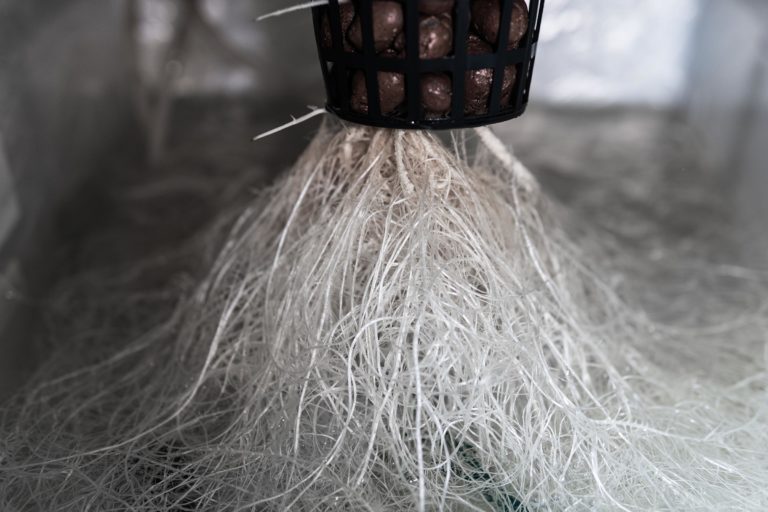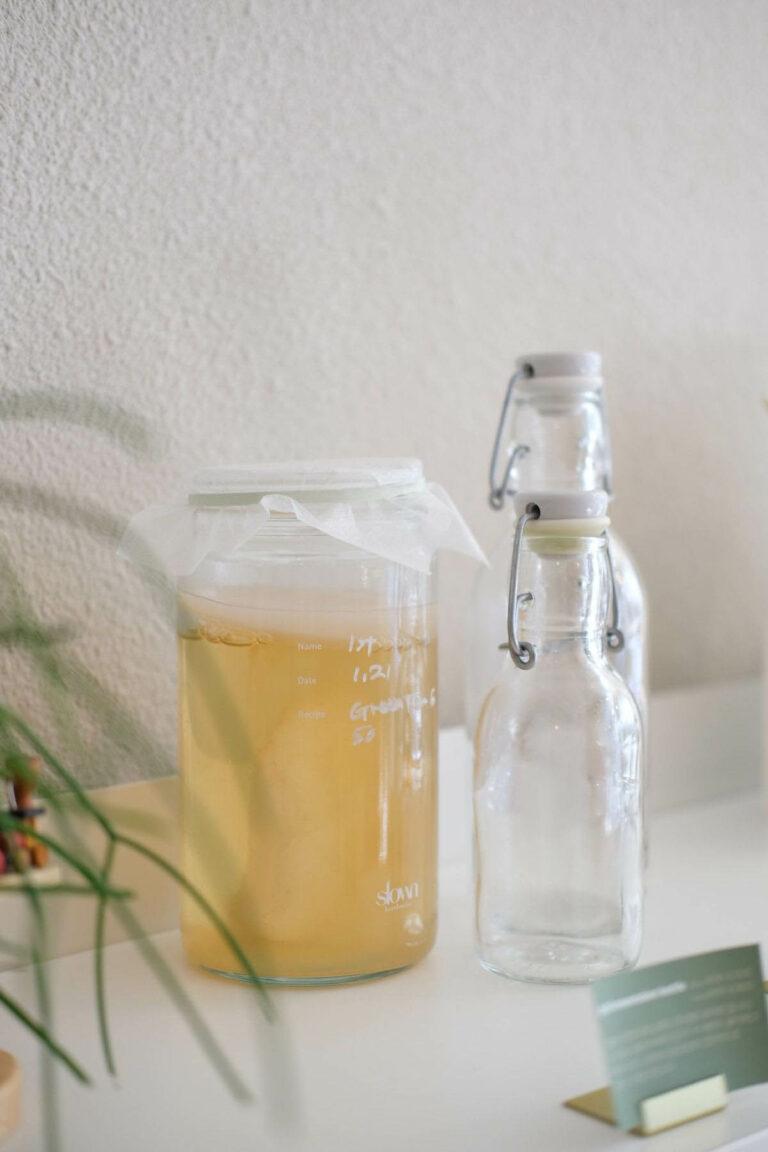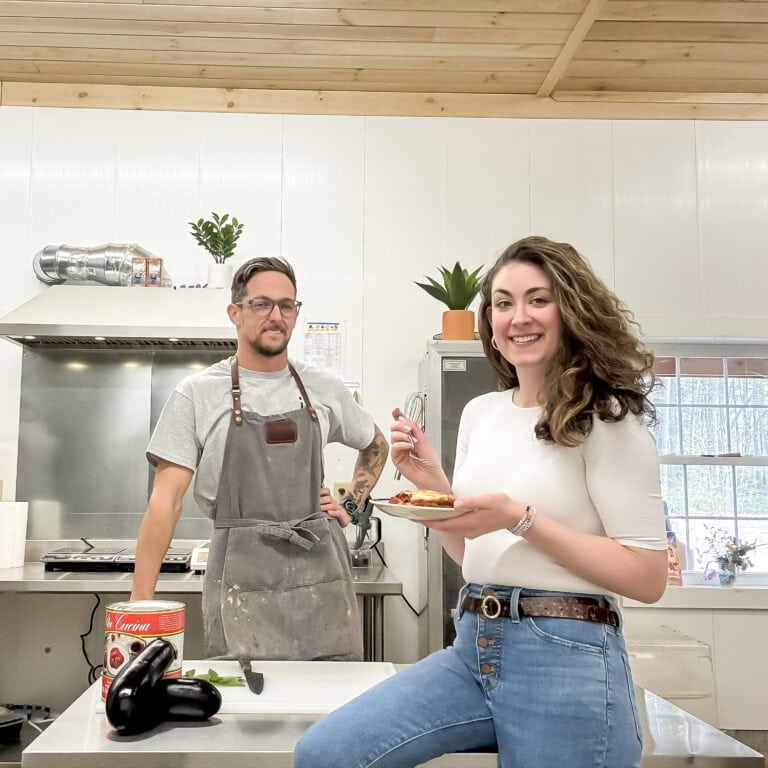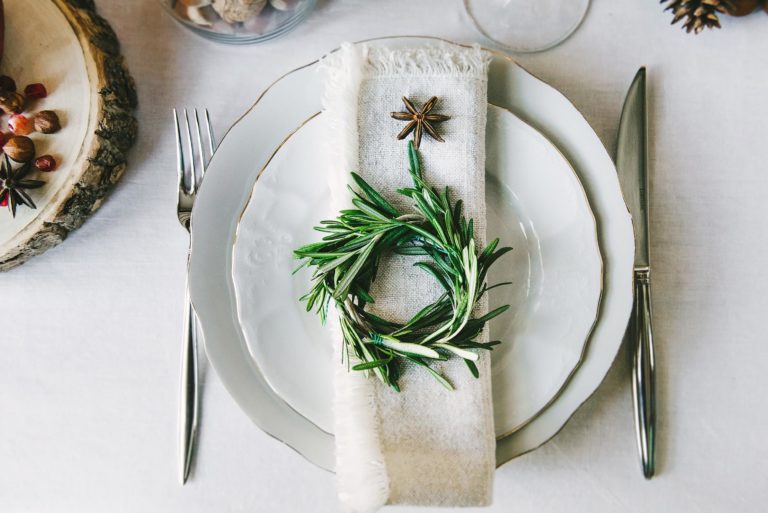Papi, a new Puerto Rican restaurant and bar located at 18 Exchange Street in Portland, doesn’t take reservations as a rule. The policy, though, has nothing to do with making customers wait in line at the doors—antique, carved wooden ones imported from Old San Juan—for a table at one of the buzziest places in town. Rather, it has everything to do with authentic Puerto Rican hospitality.
Most of the super savory, bright, and bold food served at Papi is extremely heavy on the prep but very quick on the delivery to the table, explains executive chef Ronnie Medlock. He was born into a large Puerto Rican household in Connecticut and spent summers with relatives back on the island. In both of those places, he learned how the all-hands-on-deck labor of producing traditional Puerto Rican food is his heritage.
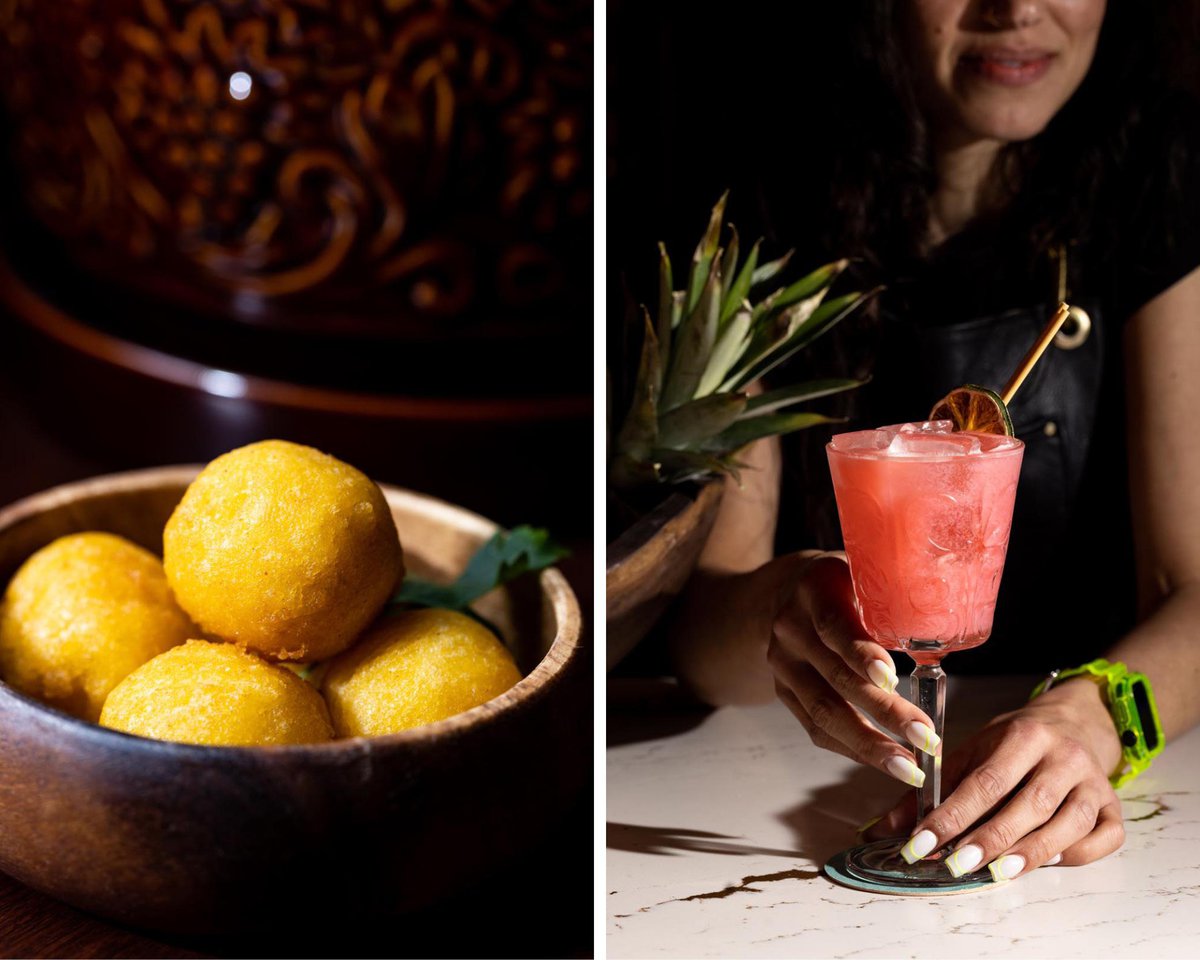
He points to one of his favorite items on Papi’s menu, beef alcapurria, as a perfect example. These fried yuca y guineo croquettes filled with picadillo, a flavorful mixture of ground beef, bell peppers, olives, garlic, and onions, are a special treat in most Puerto Rican households because they are labor-intensive to make.
“Participating in the laborious processes in the kitchen is a way to hang out with your family. We all have these memories of our grandparents’ hands making these foods,” says Medlock, who has been cooking professionally in Maine for 13 years.
But these dishes can also be mostly assembled ahead of time and just be finished off for service when a customer places an order. It takes many hands to shred green bananas for the escabeche, for example, but the pickled product stands at the ready in the refrigerator. Empanadas are painstakingly assembled by a large crew well before they get dropped into hot oil minutes before being presented to the customer. Dark-meat chicken and tomato stew is more delicious after it sits a day or two and is simply warmed up when a ticket hits the line. And, of course, there is the ever-present, long-cooked, but easy-to-dish-out pot of beans. Traditional red ones are in rotation at Papi, but Medlock is partial to small white ones.
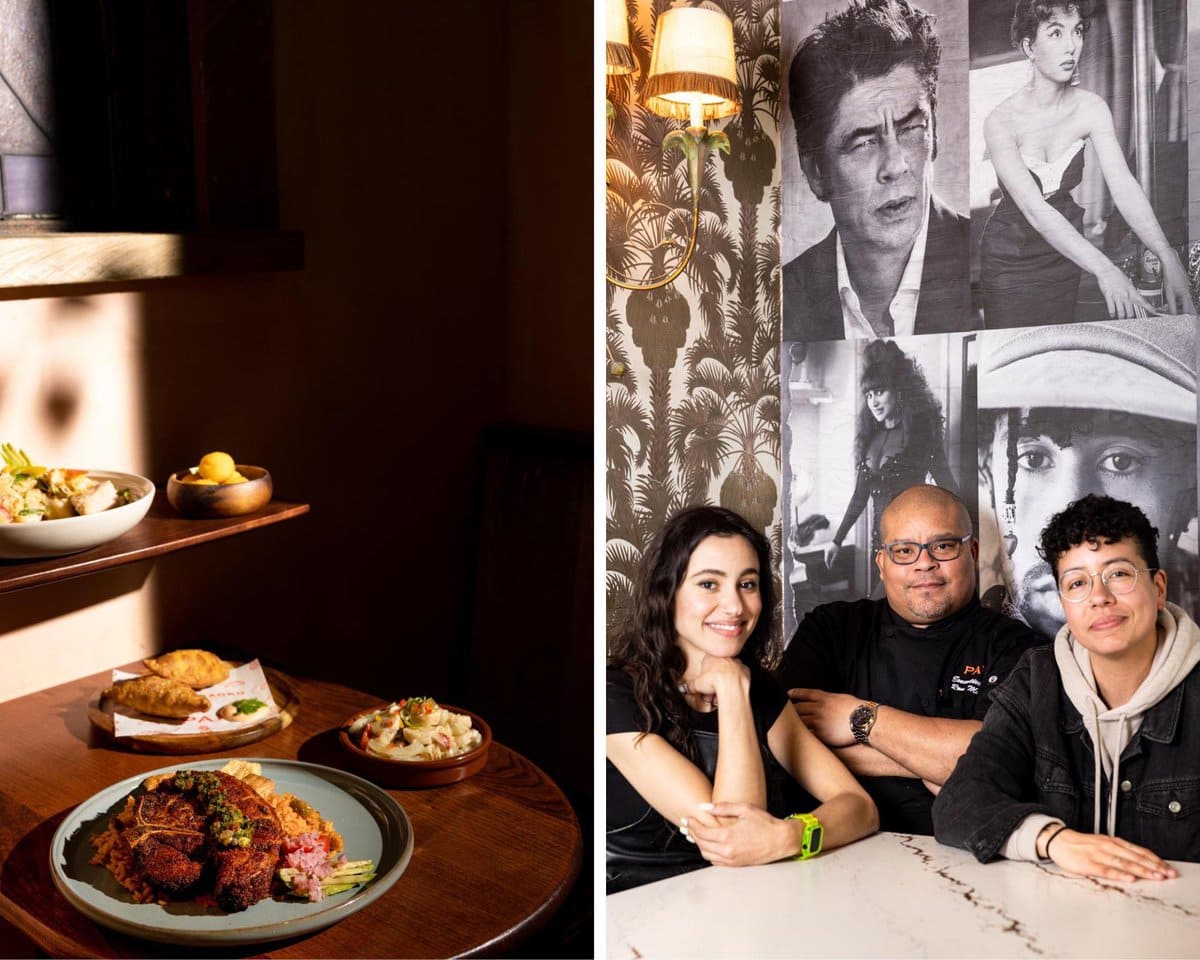
Papi diners don’t wait very long for their food to arrive, explains beverage director LyAnna Sanabria, who was raised in a Puerto Rican household in Vermont, went to college in Boston, and has been tending bar in Maine for the last five years. “Sometimes the food arrives before the drinks do, even though we’re pretty quick on that front too,” says Sanabria.
She developed Papi’s cocktail menu to reflect both modern spins on classic Latin cocktails and Latin spins on American bartending classics. For example, the Salinas Soundsystem is based on a Brazilian caipirinha because cachaça, mint, and lime are on the ingredient list. But it becomes its own thing when guanabana juice and clarified yogurt are shaken into the cocktail. For the Hot ‘n’ Sucio, Sanabria adapted a dirty martini recipe to include mandarin sofrito, aji amarillo, caper brine, and avocado oil.
When seated customers are served promptly, the forward momentum plays into turning tables reasonably quickly to accommodate anyone else walking through the front doors, she says.
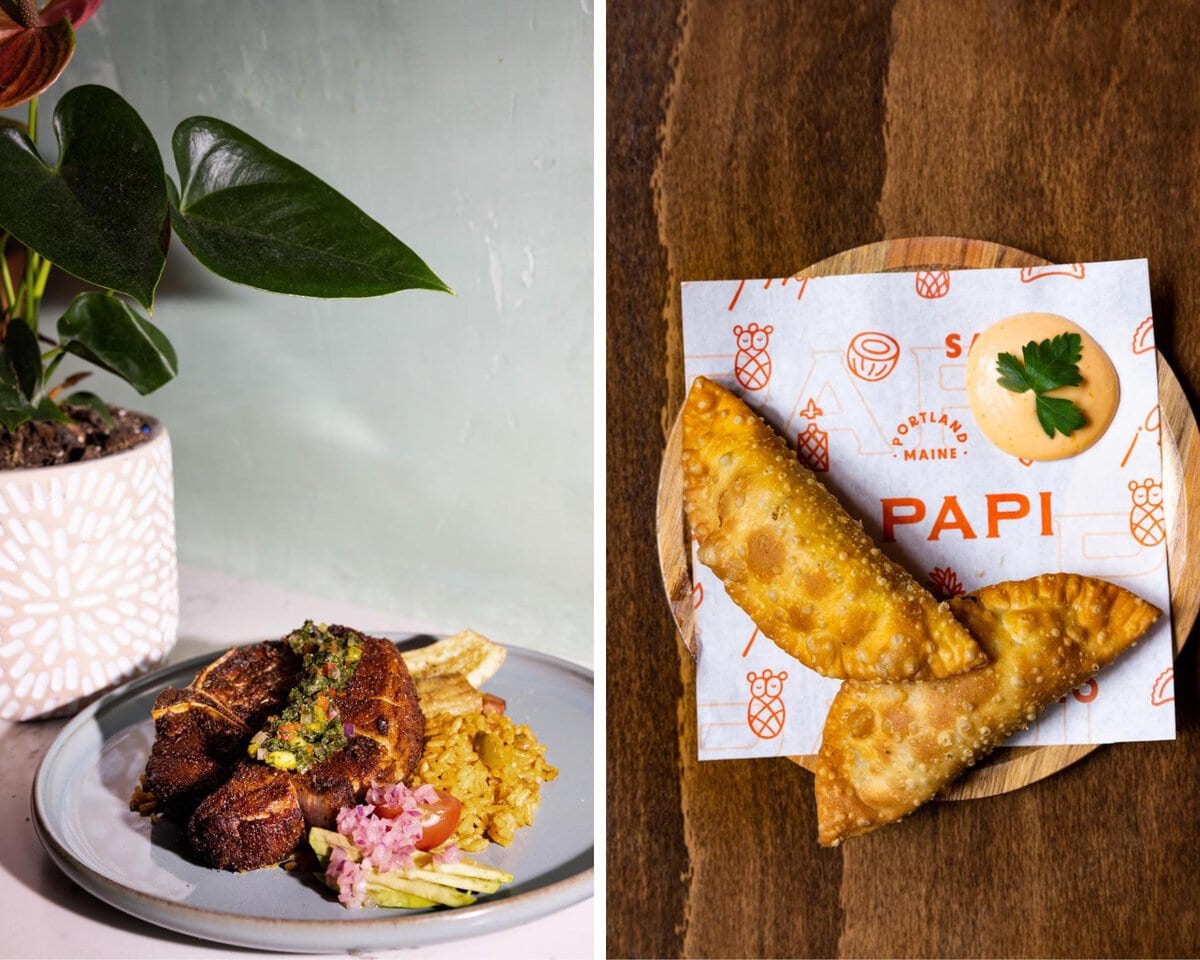
Efficient food service is a bonus, for sure, acknowledges Gene Valentin, who was raised in a Puerto Rican and Mexican household on the Lower East Side of New York City and moved to Maine in 2017. But he says the no-reservation policy “reflects a Puerto Rican sentiment that says the door to our place is always open to you.” He relates that his grandmother kept the door to her apartment unlocked at all times so neighbors in the building and relatives (Valentin boasts about having 16 aunts and uncles) in the neighborhood could simply come into her place for a visit any time they wanted.
“And the first thing she would always do was present us with a plate of rice and beans,” he says.
Therein lies the essence of Puerto Rican hospitality, which is alive and well at Papi’s.










